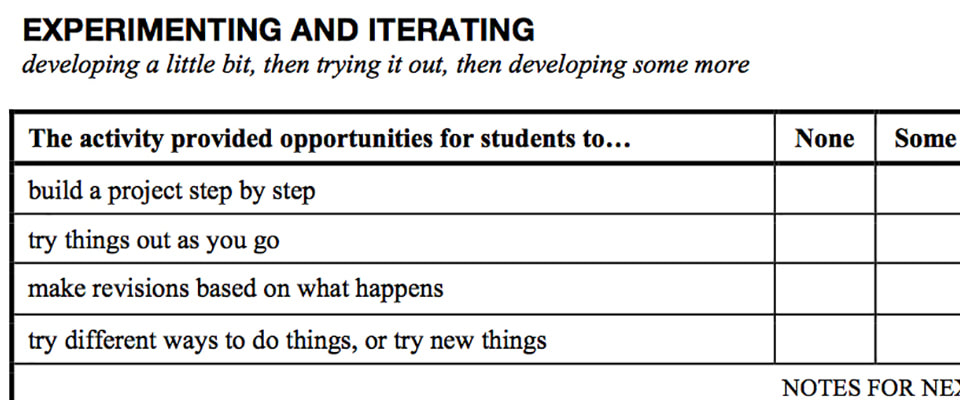Computational Thinking with Scratch
https://creativecomputing.gse.harvard.edu/ct
Computational thinking has received considerable attention as important for K–12 learners, but there are many perspectives on what computational thinking entails. We are interested in the ways that design-based learning activities—in particular, learner-directed programming projects—support the development of computational thinking in young people.
By studying activity in the Scratch online community, we developed a definition of computational thinking that involves three key dimensions: concepts, practices, and perspectives. We relied primarily on three approaches to assessing the development of these computational thinking dimensions: (1) artifact-based interviews, (2) design scenarios, and (3) learner documentation. Using these approaches, we particularly focused on evolving familiarity and fluency with computational thinking practices. Our focus on practices emerged through work with young learners—realizing that most concept-oriented assessments (e.g., checking for the presence of particular blocks in projects as indicators of conceptual fluency, quizzes about definitions of concepts) were insufficient to represent a learner's development as a computational thinker. Knowing the definition of a concept was not sufficient to put the concept into action; fluency with computational practices was also required.
You can find more information about these definitions, tools, and examples on our Computational Thinking with Scratch site.
- Brennan, K., & Resnick, M. (2012, April). New frameworks for studying and assessing the development of computational thinking. Paper presented at the annual meeting of the American Educational Research Association, Vancouver, Canada. PDF
- Brennan, K. (2022). A case for why: School, society, self. In S.-C. Kong & H. Abelson (Eds.), Computational thinking education in K-12: Artificial intelligence literacy and physical computing (pp. 15–28). MIT Press. https://doi.org/10.7551/mitpress/13375.003.0004
- Martin, W., Brennan, K., Tally, W., & Cervantes, F. (2014). Identifying and assessing computational thinking practices. In J. L. Polman, E. A. Kyza, D. K. O’Neill, I. Tabak, W. R. Penuel, A. S. Jurow, K. O’Connor, T. Lee, & L. D’Amico (Eds.), Proceedings of The International Conference of the Learning Sciences (ICLS) 2014 (pp. 1559–1560). https://repository.isls.org//handle/1/1035
- Panel on Computational Thinking in PreK-5 Grades, The National Academies of Sciences, Engineering, and Medicine

